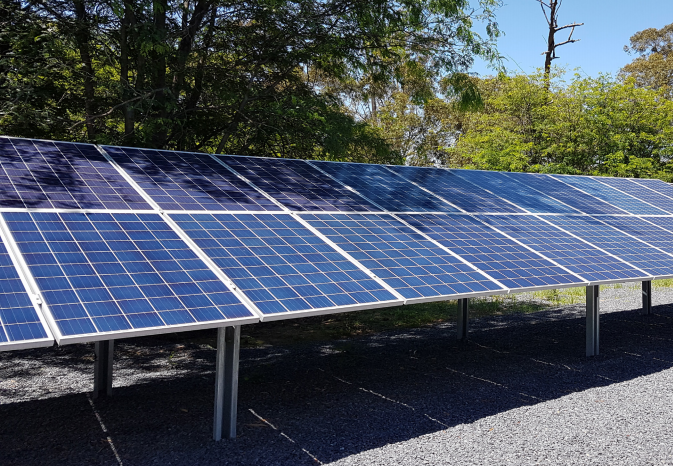Introduction
Resources are the backbone for growth in any industry. Resources in this situation are not limited to finance; they include technical, financial, human and otherwise. The fact is applicable in Nigeria’s budding Renewable Energy (RE) industry; therefore, this article addresses the need for advancing capacity building in Nigeria’s RE space to experience much desired growth to improve electricity access.
Why is capacity building important for improved electricity supply in Nigeria?
The current inadequacies in Nigeria’s Electricity Supply Industry (NESI) provide for a RE market with the anticipated financial inflow of about USD 1 billion, which can, in turn, generate an additional USD 2 billion in the next three to five years. The RE sub-sector also has the potential to create about 1 million to 1.5 million direct and indirect jobs across the entire value chain over the next three years. However, there is a shortage of professionals and institutions that can stimulate quality local content participation in the power sector.
Correspondingly, there is a need for NESI to provide a “brick-by-brick” plan that will ensure adequate capacity building from the ground up. Such a provision would empower Nigerians to bridge the knowledge gap in the sector and contribute to the build-up of quality local content. To this effect, a characteristic perspective and an innovative approach to the capacity building are required at all levels, in partnership with government and businesses, to shape Nigeria’s electricity future. This process should also incorporate renewables – local manufacturing and fabrication of energy technologies such as solar PVs, small wind turbines, small hydropower plants, and component parts.
What issues are holding back capacity building in Nigeria’s RE sector?
Skills Shortages
There are concerns surrounding the availability of local technical, and human resources skills to match the anticipated market progress. The extent of local skills shortage also cuts across the senior hierarchy of power sector participants, often leading to regulatory inconsistencies that hinder the development of the sector.
Human Investment and Development
For a clearer perspective of the skills deficit, the World Bank Capital Index put Nigeria at position 152 out of 157 countries with regards to human investments. Lack of finance also hinders interested personnel from accessing relevant training programmes. Ultimately, there is an absence of all-inclusive capacity building programmes of other interrelated subsets of the ecosystem, such as financial, entrepreneurial, technical and operational competencies.
Customer Relations
Lack of customer service and after-sales support culminates to the overall negative perception of the sustainability of the electricity market. This situation requires an all-inclusive capacity development strategy to open the market towards increased local participation.
Sector-wide Awareness
Currently, public and private sector awareness on the related technologies, energy efficiency, electricity value chain and opportunities in rural electrification are insufficient. Also, non-productive application of available personnel across the subsectors leads to unprofessionalism and inefficiency.
Are there any RE training institutions in Nigeria?
Yes, there are currently a few institutions dedicated to providing training and capacity building support in Nigeria. The foremost is the National Power Training Institute
(NAPTIN), which was established in 2009 to serve the challenges of human resource development and workforce capacity building.
Other capacity-building institutions such as Blue Camel, ASTEVENS, Shehu Shagari Research Centre, amongst others, have been able to deliver a wide variety of training courses that will enhance the skills and capacity of both technical and non-technical power utility personnel.
What prospects are available for further capacity development?
Renewables and Off-grid electrification
With regards to off-grid electrification, strong community consultation and expert local management could address challenges to long- term operations of rural mini-grids, such as the mismatch of supply and demand, electricity theft, conflicts overload curtailment and insufficient savings for repairs. There is also the prospect of developing and implementing unique energy system planning tools to support enhanced community engagement and local capacity building, with a long-term view and a focus on local ownership.
Gender Representation
Capacity building presents the opportunity to plan a conscious effort that will encourage better gender representation by targeting the inclusion of women in the NESI. Prospective activities will include: empowering women to expand energy\access to communities through renewable technologies, active engagement of women in the design and development of off-grid energy, amongst others.
Business Models
Development of a cost-effective capacity building model which supports upscaling and rapid development of energy projects cannot be overlooked. This will birth future opportunities like equity distribution of training cost between development
partners, RE developers and training institutes.
What can be done to advance capacity development in RE?
The availability of skilled manpower and relevant technology would scale-up Nigeria’s electricity market towards stability, and expand the market to a competitive global green economy in the future.
These can be achieved through the following:
•Capacity development programmes should include ethics such as integrity, values and character building. These skillsets will improve customer and investor confidence in
the market. Also, structured training modules across diverse areas like energy audit, energy efficiency and efficient building designs can scale-up the skills necessary to reduce the financial risks and unlock credit facilities of RE projects.
• Encouraging the participation of the local private sector, including entrepreneurs and communities should be encouraged. This can be established through dedicated and stable policy and regulatory frameworks, financial incentives, and the introduction of capacity building related programmes such as entrepreneur incubation and skills training.
• Proper policies and collaborations, where Nigeria can create a model that equips the technological, operational and financial capacity of local RE companies and stakeholders towards achieving Vision 30:30:30. Vision 30:30:30 is aimed to attain 30 gigawatts of electricity with 30{1c02100822988c48c7b0a484ab61ac3d7f398d67c2f66594d88b2db33072d9d9} RE by 2030.
• Intra-market collaboration between participants across different streams and operational capacities is highly encouraged. These partnerships will lead to ease of access to relevant skills as well as technology transfer. The infant companies will find more stability over a shorter period.
• Review of the Nation’s educational curriculum across all tiers to include prioritized entrepreneurial, vocational and industry-based skill-sets and values.
• Donor agencies partnership and collaboration to support the actualisation of the green economy potential in Nigeria through capacity development.
Conclusion
Nigeria’s electricity market, despite currently in transition, stages the potential to improve electricity access nationwide, and also create ample employment opportunities across diverse areas of specialisation through adequate capacity building. The future success of Nigeria’s Electricity Supply Industry (NESI) will directly impact on the attainment of energy security, which is necessary for adequate industrial and economic development in Nigeria. Consequently, the projected increase in foreign and local investments towards on and off-grid electrification must be backed up by an abundance of skilled workforce motivated towards a common goal. Workable strategies of capacity building for stakeholders is key to accompany the development and operation of power sector projects.
Author: Osayu Ogboghodo is a consultant at Nextier Power
Editor: Osasu Eghobamien is a power sector analyst.







